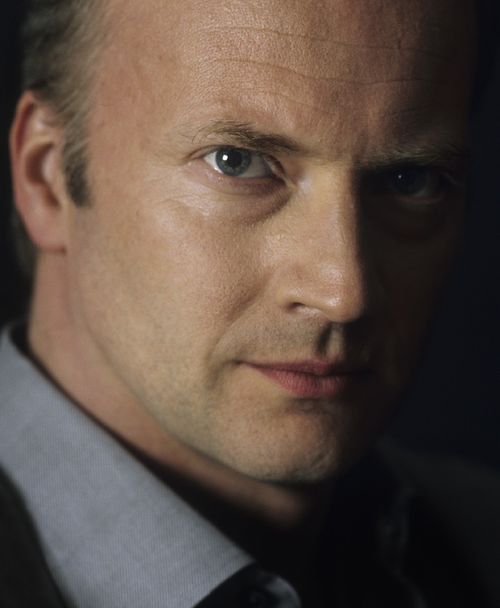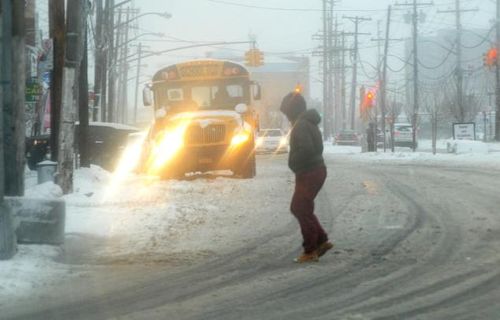
THE WALL STREET JOURNAL
March 6, 2014
An Italian Conductor Looks to US Models
By James Panero
The conductor Gianandrea Noseda knows what it's like to have the roof cave in. As the curtain falls on Act II of "Prince Igor," the acclaimed new production of Alexander Borodin's opera at the Metropolitan Opera, the roof in Igor's court of Putivl collapses in grand fashion: Sparks fly, beams and ceiling lights come crashing to the ground. "I hope the roof of the theater will not collapse," jokes the maestro, who will lead the Met's final performance of "Prince Igor" on Saturday.
Italy's continuing financial crisis could have spelled a similar fate for the Teatro Regio Torino, the Turin opera house where Mr. Noseda has been the music director since 2007. The country's austerity measures, which hit hard over the past five years, have slashed state funding for cultural institutions. And in the birthplace of opera, where the government has traditionally provided lavish support for culture and the arts, many opera houses have had no choice but to curtail productions, limit artistic recruitment and training, and, in some cases, go dark.
From Florence and Rome on down to Naples, most of Italy's opera houses are now operating in the red. But not the Teatro Regio, where performances increased to 110 in 2012 from 85 in 2005, even with a reduction in staff. Its orchestra and chorus have also just announced an ambitious North American tour, including an appearance at Carnegie Hall on Dec. 7, featuring concert performances of Rossini's opera "William Tell."
Teatro Regio's good fortunes can be attributed in large part to Mr. Noseda, the energetic 49-year-old native of Milan who has turned his country's financial crisis into an occasion to introduce an American idea to Turin: a culture of private philanthropy that will sustain the arts even when the government cannot.
"We need to involve the Italian people to support the arts," he explained during a lunch meeting. "To take from your pocket and give money for something culturally oriented—that philanthropic element is missing in Italy. Because, since we were kids, we have been used to the state doing that. So developing a culture of philanthropy is something that will take a generation. It will take 20 years to build that culture in Italy. But we are starting."
The issue is about developing not just donors but also willing fund-raisers. When it comes to donor development, European concert-house managers have traditionally been prima donnas more than rainmakers. The same year Mr. Noseda took the podium in Turin, for example, the Belgian-born Gérard Mortier was tapped to become director of the (now defunct) New York City Opera. Just as the financial conditions of that company worsened in 2008, Mr. Mortier—rather than pursuing new sources of revenue—bolted for a post in Spain when it became clear he wouldn't have the easy resources to enact his artistic vision.
"Of course it requires a lot of my time, but you have to survive. You have to continue your activity," says Mr. Noseda, who worries about the cascade of failures he now sees at other Italian institutions: "Less money; fewer productions. Less money; fewer singers. Less money; less opera." Instead, he says, "it is my aim to convince people to come along, to be supportive, to be part of the project, to really use the energy you have to get to a common aim." As he explained in a recent interview for La Stampa, Turin's daily newspaper, if he only did what his government could pay for, his opera house would disappear. But with bold plans, focusing on the global market, he is able to attract the funding to implement his broader artistic aims.
Five years ago, 95% of Teatro Regio's funding came from the state. Today, that percentage is closer to 75%. Ideally, he says, he would like to see private philanthropy make up 35% of his funding. "What I try to do is not to lose the majority of support coming from the state, but to integrate private sponsorship," he explains.
Such a mixed-funding model is now being pursued by other innovative Italian institutions as well. In 2006, the city and province of Florence joined forces with its chamber of commerce and private donors to revive the Palazzo Strozzi as an exhibition hall. With an autonomous board built in the style of U.S. nonprofits, the Palazzo Strozzi now boasts a business model that is "exceptional for its mix of public and private funding streams" and "its high percentage of earned revenue," according to its latest annual report.
At the Teatro Regio, Mr. Noseda's donor outreach has been met with support from Eataly, Lavazza and Fiat—all Turin-based companies—as well as from individual donors. The greatest interest, he says, has come from a younger generation of Italians such as Michele Denegri, the 44-year-old new owner of Del Cambio, Turin's most historic restaurant.
Mr. Noseda has found private support for his Teatro Regio despite the fact that Italian tax law does not grant deductions, along American lines, for charitable giving. Sometimes, Italian companies with U.S. operations are able to contribute through a U.S. charitable arm, but Mr. Noseda hopes that Italy will modernize its own tax laws to allow similar deductions for in-country contributions. "We will not copy, but we take some inspiration," he says of his new funding model. "So we have to find an Italian way to use these ideas that we can collect around the world." While Matteo Renzi, Italy's new 39-year-old prime minister, has recently promised sweeping tax reform, it remains to be seen if the charitable deduction will be included.
One irony of Mr. Noseda's enthusiasm for American-style cultural philanthropy is how such support has recently come under attack here at home. "Philanthropy for the arts or for cultural activities is, in a world like this one, morally dubious," wrote the Princeton philosopher Peter Singer in his 2009 book "The Life You Can Save." By contributing to a museum rather than to cataract operations in the developing world, Mr. Singer claims, donors are in effect blinding children. Studies by the Conference Board and by the Center on Philanthropy at Indiana University show that such antiart attitudes have been absorbed by many American philanthropists. Last fall, in a widely publicized interview, Bill Gates reiterated Mr. Singer's utilitarian condemnation of cultural philanthropy.
Yet the future of Italian culture has little time for armchair philosophy. At the end of the Met's production of "Igor," updated by Mr. Noseda and the director Dmitri Tcherniakov, the prince, defeated in battle, humbly begins picking through the rubble of Putivl. As the curtain closes, a seeming cast of thousands comes together in repairing the city brick by brick. "Why do I have to delay until the next generation?" Mr. Noseda asks. "This duty is on my shoulders. There are so many ways to motivate people to support an opera house, to support culture."
